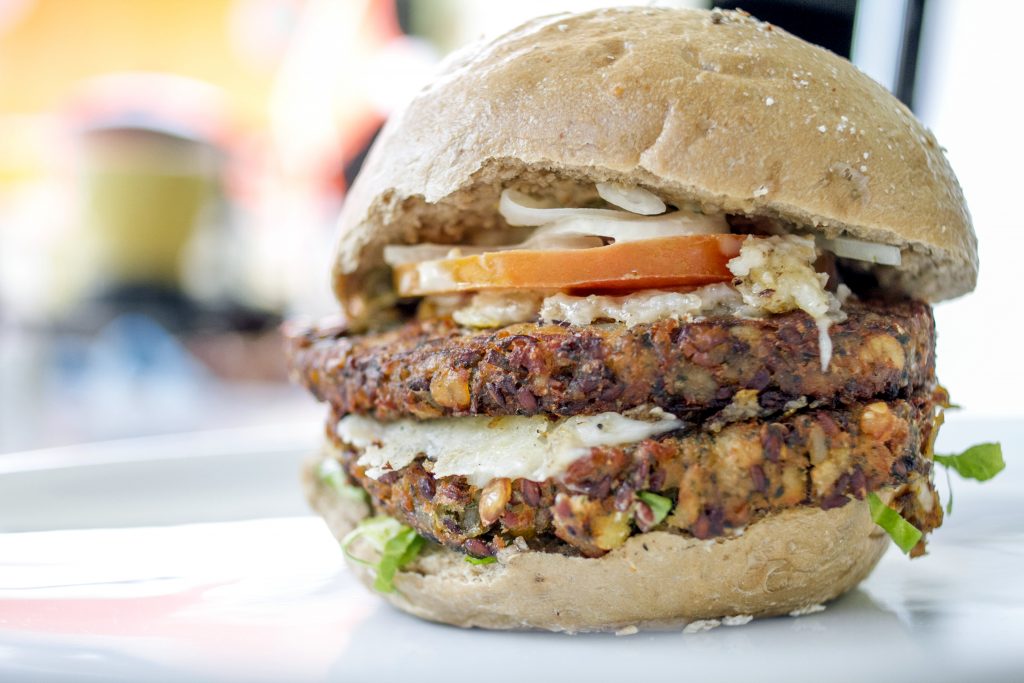As more of us are cutting back on meat, there’s a new trend for faux-meat that “bleeds”.
What it means: As a part of the economy, the food and agriculture industry is humongous: it makes up 10 percent of global GDP. (GDP is the total value of all the goods and services we produce each year.) That’s probably not super surprising. After all, everyone in the world buys a lot of food, not least because we need to keep eating if we want to stay alive.
But that doesn’t mean farmers and food businesses can make money by just churning out whatever sort of food they want. Instead, they have to pay attention to the trends and motives that make us prefer certain types of food to others: because we like the taste, because it suits our budget, because we think it’s healthier, because it looks great on Instagram, etc.
And one type of food that seems to be falling out of fashion in places like Britain is meat. A quarter of British millennials say they’re vegan, vegetarian or flexitarian (where you’re mostly veggie but occasionally go back to the carnivorous side). More than a third of all Brits say they deliberately have meat-free days. And in 2017, demand for meat-free food increased by 987 percent.
But, interestingly, although more and more people are ditching actual meat, many still seem keen on retaining all the sensations of having a bit of dead carcass in your mouth. Quorn, a company that make meat-substitute meals, is slated to be a billion-dollar business by 2027. Other companies have set up factories which “grow” meat in big vats (from animal cells, so it’s like real meat without the animal). And bleeding burgers - vegan burgers designed to fake the appearance of bloody meat - are becoming more and more popular.
Why? It may just be that most people who are cutting back on meat aren’t particularly squicked out by eating animals. According to one poll, a third of meat-reducers said their choice was rooted in concern for their own health. And a third of respondents said they thought eating less meat helped the environment. Plus, the fact that 84 percent of people who try a veggie or vegan diet fail to keep it up suggests that the majority of human beings find eating meat more convenient or just quite like eating it.
That might mean the future of food will be less about leafy greens and more about mimicking meat. And we might see both profit-hungry food businesses and the large number of people who think we all need to eat a lot less meat to save our planet directing more of their energies into growing the faux meat sector.
Read our explainers on consumer choice theory and food choices.

